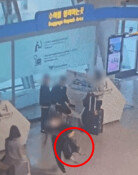[Opinion] Politicians Visit the Poor to Find Out How They Live
[Opinion] Politicians Visit the Poor to Find Out How They Live
Posted July. 11, 2005 03:20,
In Koreas dynasty era, kings often met common people in disguise to see how their people lived and what kinds of problems they confronted. King Seongjong once met one man who crouched down under the Gwang Bridge of Cheonggyecheon. The mans name was Kim Hui-dong, who just came from Gyeongsang-do. Kim, who was hanging around under the bridge because he couldnt find any vacancy in nearby inns, said to King Seongjong, Thanks to our benevolent king, we are living rich and comfortable lives now. I just came here to give ear shells and sea slugs to my king as a token of my gratitude. Do you know where the king is living?
However, in modern Korea, even though presidents often went out to see how common people carried out their lives, they dont meet people in disguise. Former president Chun Doo-hwan often visited restaurants that served hangover cure broths where he met common people like taxi drivers. Chun also visited soldiers who served in the foremost front line. Even though some ironically said that Chun visited them with the purpose of checking on who spoke ill of him from the early morning, there was no one who slandered what he did in front of Chun. Now, President Roh Moo-hyun is also visiting low-income neighborhoods and the Mapo rehabilitation center to hear the voice of the poor. If Roh disguises himself and opens his ears to them like King Seongjong, how many men like Kim Hui-dong Roh can fortunately meet?
Politicians visits to the poor often take place with the purpose of begging for a good impression from the public. For example, Lee Hoi-chang, when he was running as a candidate for the 2002 presidential election, happened to be entangled in a scandal that he fabricated visits to low-income apartment residences by meeting with newly married couples and soon-to-be married couples to commemorate his visit. However, it was revealed that they werent residents of that apartment. In addition, Unification Minister Chung Dong-young, when he served as the chairman of the ruling Uri Party, visited a number of elderly people who were living alone, met people working in conventional market places, and flew to China just during one day. However, he said, Meeting them was a very heart-moving experience to me, which consequently made people wonder what the real purpose of his visit was.
As soon as the extraordinary assembly session ended last month, the lawmakers of the ruling Uri Party, including its party executives as well as its ordinary members, rushed out to visit ordinary people under the slogan of To Know Peoples Livelihood. Last Thursday, two separate groups visited the Incheon Small Businessmen Support Center and the Anyang branch of the Gyeonggi Credit Guarantee Fund and worked as one-day counselors. The lawmakers did the same thing last summer. But nothing has improved since then. Instead, the situation is getting worse now. Like proverb saying, Great boast, small roast, lawmaker visits to ordinary people to get publicity dont seems to offer any real enhancement of peoples livelihoods.
Lim Gyu-jin, Editorial writer, mhjh22@donga.com







